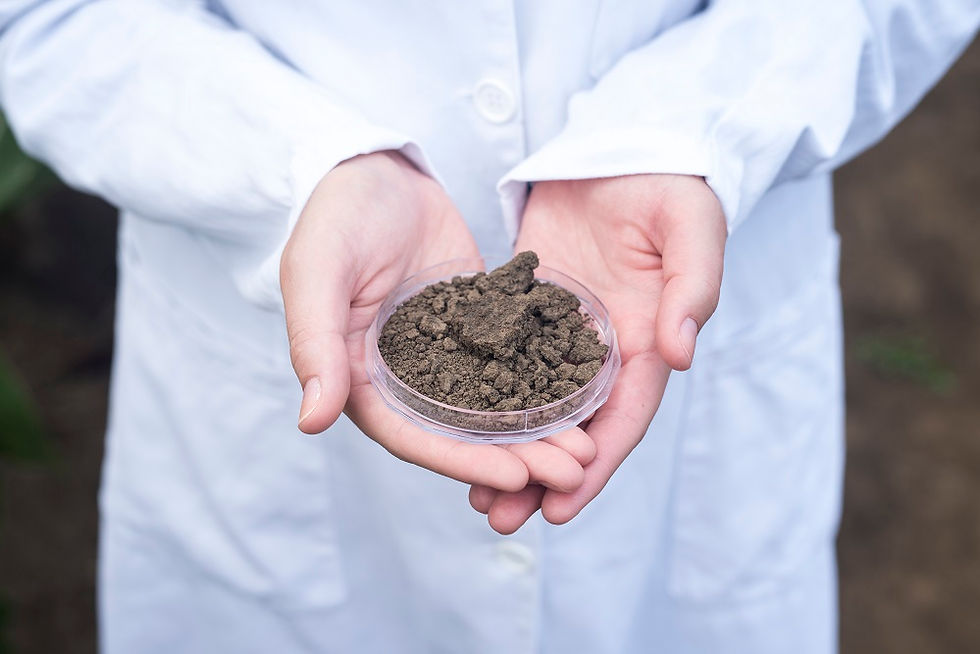Understanding the Environmental Impact of the Dog Products You Buy
- Mike Warner
- Aug 9, 2024
- 4 min read
Updated: Nov 6, 2025
Have you ever paused to consider the environmental footprint of your fuzzy companion? If you're a pet parent devoted to both your dog’s comfort and sustainable living, the goods you purchase—from food and toys to grooming items—potentially carry a significant ecological impact. (Breathe easy, we aren't here to cast your beloved as a carbon culprit.) Instead, this blog post aims to equip you with the knowledge you need to make more eco-friendly choices. So, are you ready to explore how your pet’s paraphernalia can tread lightly on the Earth?
In an increasingly conscious world, questions about the environmental ramifications of our choices inevitably arise. Perhaps, like many of us, you've been focusing on reducing the carbon footprint of your family, food, and transportation. But what about Fido? What can you do to ensure that your hound's happiness doesn't come at the expense of the planet?
This in-depth guide aims to help you better understand the green implications associated with buy common dog products. It will offer insight into how you can balance your beloved pet's needs with your desire to protect Mother Nature. And don't worry, your pup won’t have to sacrifice a full belly or a good game of fetch.
The Dog Food Dilemma: Unpacking the Carbon Paw-print
It’s no secret that the dog food industry is a booming one, fitted with an array of options to meet every pup's needs and preferences. However, it's also an industry that has the potential to leave a hefty carbon footprint behind.
Production processes, packaging, and transportation all contribute to the environmental load exerted by the dog food industry. It's vital to consider these when making your choice. Pet food manufacturers who source locally, reduce packaging waste, and implement sustainable manufacturing practices help keep this aspect of pet ownership greener.
Sustainably sourced, plant-based diets are another alternative for reducing your dog's food carbon footprint. Recent studies suggest some dogs can thrive on carefully formulated plant-based diets, but it's always essential to consult with a veterinarian before making any drastic dietary changes.

Toys and Accessories: Hidden Costs and Green Options
From the squeaky toy that keeps your retriever entertained to the snuggly bed your terrier adores – dog toys and accessories are inherently part of life with a dog. These products, however, often rely on non-renewable, non-biodegradable materials, leading to potential pollution issues.
Thankfully, the market offers green alternatives – toys made from sustainable materials like hemp and recycled plastics, and accessories crafted from organic or upcycled fabrics. Opting for these can significantly reduce your pet’s environmental impact without compromising their enjoyment.
Keep in mind, though, that longevity can be a form of sustainability. Investing in durable toys and accessories that will last can reduce the demand for new products and the associated environmental costs.
Grooming Products: A Lather of Environmental Considerations
When it comes to grooming items - whether it's shampoo or flea treatments - it's crucial to remember that 'what goes down the drain doesn't disappear.' Synthetic chemicals in these products can pollute waterways, impacting aquatic ecosystems.
Choosing eco-friendly brands that use biodegradable components and eschew harsh chemicals poses fewer risks to our water supplies. High-quality, natural ingredients can be gentler on your pet's skin too - a win-win situation!
Waste Management: Can Poop Bags be Green?
Yes, the issue is a stinker, but waste management is an unavoidable aspect of dog ownership, carrying its own set of environmental implications. Traditional waste disposal methods, such as using non-biodegradable bags and landfill disposal, have significant environmental downsides.
More sustainable options include compostable or biodegradable bags, and even home composting systems specifically designed for pet waste. With these, you can tackle the inevitable in an environmentally friendly way.
Navigating the Market: Identifying Eco-Friendly Providers
As global consciousness about sustainability grows, numerous manufacturers are opting for greener practices. Brands that prioritise minimal packaging, utilise sustainable ingredients or materials, and adopt responsible waste management practices can help you lessen the environmental impact of your dog ownership.
Each Small Step Counts: Reducing Your Pet's Carbon Pawprint
While it may seem that there's a mountain of considerations when trying to reduce your dog's environmental footprint, remember that every little change contributes. From buying local, less-processed food to choosing toys made from recycled materials - your choices make a difference.
Conclusion
While our pets might be blissfully unaware of their carbon pawprint, we, as their guardians, hold the responsibility of making eco-conscious choices on their behalf. As we’ve explored, there’s a plethora of ways to ensure our dogs have fulfilling, happy lives while also caring for our planet – it certainly isn’t a tale of ‘either-or’.
The world of dog products is changing, with many brands steering towards greener practices. By opting for sustainable dog products, we not only express love for our furry friends but also for the environment we all share. Of course, navigating these changes with your pet's well-being paramount will take time, research, and, at times, trial and error. But remember - every little bit helps! Because when it comes to sustainability, we’re all in this together – Fido included.











Comments